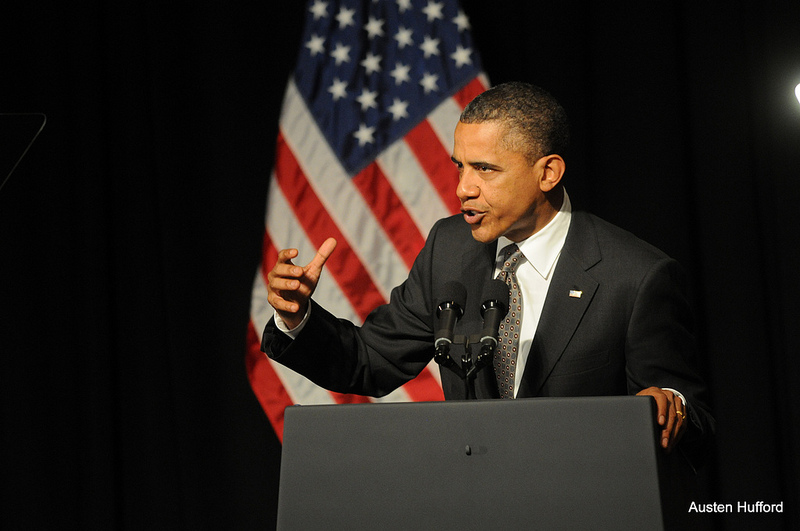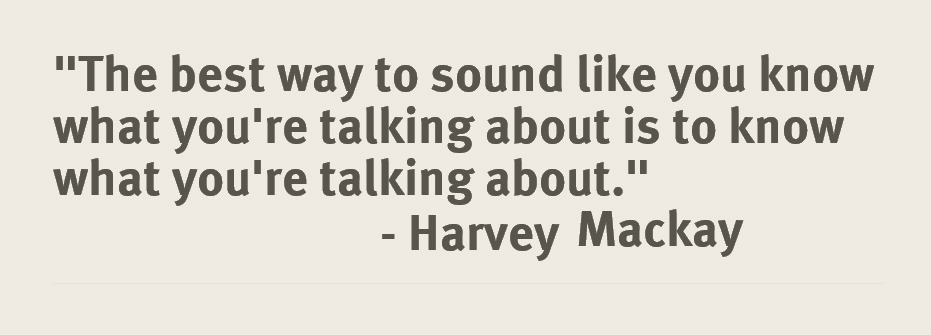How To Own The Stage With These 4 Public Speaking Secrets

Photo credit: Austen Hufford / Foter.com / CC BY Barack Obama is a master at grabbing and keeping his audience's attention, which is the number one goal of any public speaker.
Speaking in front of a crowd can be a terrifying experience. There are so many things to consider – to a point that you think that no amount of practice can ever save you from the fear of delivering a speech or presentation. More often, rarely do you get the motivation to get rid of that fear.
But there are moments in your life, especially in your career, when you are finally given the chance to express and prove yourself. Of course, you do not want to leave that opportunity to fate. After all, it is that moment when everyone's ears and hearts are yours and it's your chance to steal them. For this kind of situations, you need more than practice to slay your audience.
4 Public Speaking Secrets You Need to Remember
Topic Expertise
As a speaker, it is absolutely important to know what you are going to present. Sounds like a no-brainer. But for a lot of speakers out there who do not take the time to really study and know everything they have to know about their topic, they miss the chance to create the authority image that their audience expects from them.
For this to happen, you need ample time to look over all the data that you have and process them in such a way that they are easily understood as a whole.
With a comprehensive amount of knowledge on your topic at your disposal, you would be able to identify the main points that should be emphasized and shall never be caught off guard by unexpected questions that could be or not really related to your topic. That kind of confidence is all you need to win it, not wing it.
Another benefit to this is the ability to arrange the data in such a way that the information flows smoothly from you as the speaker to the receiver who is your audience.
Word Management
Now that you are confident with your data, the next step is to translate it into words that would ultimately tell the story that you would like to share with your audience.
Audience members usually leave with the beginning and the end of the speech in mind and this makes it really important for you to start and end your presentations with statements that would stick to the minds of everyone for the reasons that you want them to. To make things easier for the audience to remember your speech, turn it into a story. Make it flow like a narrative without losing the professional tone of your speech.
Metaphors are also particularly helpful in making your points understandable which is actually a limitation that direct language could not offer all the time. And do not forget to inject humour whenever possible. This creates breathers between important topics, to increase the satisfaction of the audience.
Related Post: NLP Language of SalesBody Language
Aside from the words that you use in your speech, the other important point that you have to focus on is your body language. Your physical movement defines the words that come out of your mouth. They actually tell your audience the truth that you want them to hear.
Some movements to watch out for would be your posture, the position of your hands, and your facial expressions. Standing in an upright, yet relaxed manner exudes that air of confidence without you even saying a word. Hands should be at your sides or just clasped in front of you and never inside your pockets. Putting them inside is a sign of insecurity that your audience could actually see. And last but not least is your facial expression. Some people are good at giving poker faces while others are so transparent that it would be so hard not to notice them and align them with the words that come out of your mouth. However, the most important part of your face would be your eyes and the eye contact that you need to develop with your audience.
Here is an example of one of the best speeches US President Barrack Obama delivered during his campaign.
The NLP Eye Contact Approach
The NLP or Neuro-Linguistic Programming focuses on the favourable state of the person to allow the efficient way of transferring information from the speaker to the audience. Such an approach encourages different approaches for different audiences, almost like customizing each reaction to every single person who needs to receive your information. And this is also true for eye contact.
Perpetuated by so many credible sources or references is the idea that gazing into another person's eyes is the best way to do it. What is never discussed is how uncomfortable it can be for some people, especially if the speaker is a complete stranger.
Since the idea is to customize the approach to the individuals, it would be difficult to pull it off with a crowd. To maximize this approach, focus more on the commonalities than the difference and be adaptable to every reaction you get from the audience. The key here is to be sensitive to their reactions without looking like you are on the watch out for every tiny reaction they give. There are some styles that you may want to consider to satisfy your needs.
To stare fixedly is a style that aims to intimidate the audience or show them how confident the speaker is. Darting glances give the impression that you are not really confident with yourself so try to avoid this manner. The turn-and-turn-about style is the most commonly used and this just means that your audience looks steadily at you and when it is your turn to speak, you continue the gaze but look away from a little more at times. This is best for keeping presentations as reachable as possible.
So while it is true that the eyes are the mirrors of the soul, they can still be utilized to bring out the non-verbal messages that in actuality are almost as important, if not, more important than the spoken message of your speech. Use that soul to convey your messages wisely.
To learn more about the intricacies of improving your public speaking skills using NLP techniques, join us in the 3-hour Public Speaking Training and Workshop with Singapore NLP trainer Jacky Lim.
Simply fill out our inquiry form or call us now to book the seat reserved just for you!
